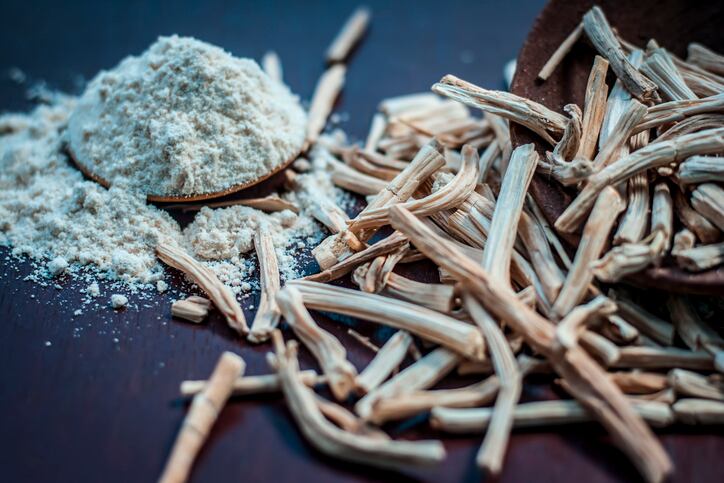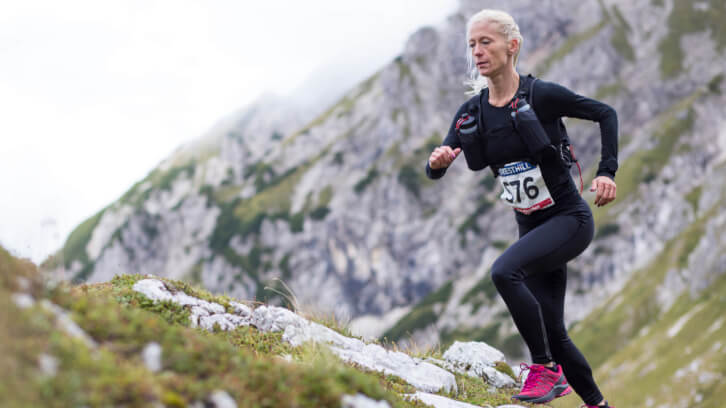According to a study funded by Pukka Herbs and published in Frontiers in Nutrition, this was accompanied by evidence of increased muscle contractility in older and younger women.
“These novel observations strongly support the notion that Shatavari supplementation promotes neuromuscular fatigue resistance,” wrote researchers from Manchester Metropolitan University, the University of Birmingham and the University of Exeter in the UK.
Shatavari (Asparagus Racemosus Willd) is an herb used in the Ayurveda tradition to treat conditions related to the female reproductive system. Rich in phytoestrogens and other bioactive compounds, it has been reported to relieve menopausal symptoms due to its hormone-balancing effects.
Previous research suggests that Shatavari has beneficial effects on strength training, handgrip strength and muscle adaptation during exercise.
Because declining estrogen during menopause may accelerate age-related muscle decline, the current researchers hypothesized that shatavari may positively affect strength in this population group and compared the herb’s effects in older and younger women.
Potential mechanisms
Referring to the differences in effects between age groups, the researchers explained that postmenopausal skeletal muscle is “likely to be uniquely susceptible to one of the hypothesized mechanism of shatavari action.”
The researchers proposed that phytoestrogens in shatavari bind to estradiol receptors. Estradiol improves myosin binding function and muscle force production.
Additionally, they suggested that shatavari’s antioxidant properties may mitigate the oxidative stress produced in exercise, preventing the adverse impact of reactive oxygen species (ROS) on skeletal muscle function.
They noted that older skeletal muscle may be subject to increased oxidative stress.
“It is therefore plausible that older adults could derive greater skeletal muscle benefit from a supplement with an antioxidant mechanism of action,” they wrote.
However, they noted that the mechanisms by which shatavari increases proteins related to the innate immune system in older women remain unclear.
Study details
The randomized, double-blind, placebo-controlled trial involved 17 young women (18 to 35 years) and 22 older women (55 and older) who completed an 8-week resistance training program while consuming either shatavari (1,000 mg/d, equivalent to 26,500 mg/d fresh weight) or placebo.
The training program consisted of two weekly sessions focusing on knee extension and leg press. The weight was increased when the participants achieved two or more repetitions above the desired range for two consecutive sets.
During four visits, researchers measured leg strength by performing one rep max, hand grip strength and neuromuscular function and performed skeletal muscle biopsies.
The results revealed that the older women taking shatavari increased their maximum weight lifted each week and the number of leg press repetitions. These results were not observed in the younger cohort.
The increased load in older women, however, did not lead to a greater increase in leg muscle strength or an additional increase in skeletal muscle fiber size compared to placebo.
There was evidence of increased muscle contractility in older and younger participants. The researchers noted that older skeletal muscle was “enriched in proteins related to the innate immune system and in acute phase proteins compared to placebo-supplemented.”
Source: Frontiers in Nutrition. doi: 10.3389/fnut.2024.1498674. “Shatavari supplementation during eight weeks of resistance training increases training load, enhances skeletal muscle contractility and alters the skeletal muscle proteome in older women”. Authors: E. Greed et al.




